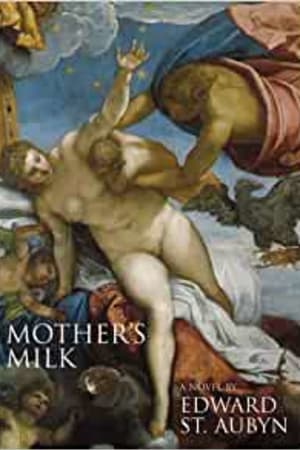Contemporary
- Publisher : Grove Press, Open City Books
- Published : 11 Oct 2005
- Pages : 240
- ISBN-10 : 1890447404
- ISBN-13 : 9781890447403
- Language : English
Mother's Milk: A Novel
Writing with the scathing wit and bright perceptiveness for which he has become known, celebrated English author Edward St. Aubyn creates a complex family portrait that examines the shifting allegiances between mothers, sons, and husbands. The novel's perspective ricochets among all members of the Melrose family -- the family featured in St. Aubyn's widely praised trilogy, Some Hope -- starting with Robert, who provides an exceptionally droll and convincing account of being born; to Patrick, a hilariously churlish husband who has been sexually abandoned by his wife in favor of his sons; to Mary, who's consumed by her children and overwhelming desire not to repeat the mistakes of her own mother. All the while, St. Aubyn examines the web of false promises that entangle this once illustrious family -- whose last vestige of wealth, an old house in the south of France -- is about to be donated by Patrick's mother to a New Age foundation. An up-to-the-minute dissection of the mores of child-rearing, marriage, adultery, and assisted suicide, Mother's Milk showcases St. Aubyn's luminous and acidic prose -- and his masterful ability to combine the most excruciating emotional pain with the driest comedy.
Readers Top Reviews
Eliot MarxAlina Tort
This is the fourth of the five Patrick Melrose novels. I thought Never Mind (the first) was very good; I disliked Bad News (the second) although I must admit that it's very well written. Some Hope (the third) gave me just that and I decided to go on reading. But Mother's Milk, despite being so well reviewed and shortlisted for the Booker Prize, was a disappointment. Instead of heroin (Bad News), I read a book about alcohol and, once again, I felt that I was reading a very well written awful book. I am aware that my problems with both Bad News and Mother's Milk have to do with me, not Edward St. Aubyn. I worked for years with drug addicts and alcoholics and I must admit, I often thought "how many more times in my life will I hear the same story?". In retrospect, I'm glad I did read the novel because At Last (the fifth) is really worthwhile.
ashish shukla
A book largely in dialogues, it is bitingly human. It meanders along before it suddenly gallops to high grounds as one nears end. A very insightful work on family relationships and the everyday unspoken violence of it, as the author puts it. Some of the phrases bewitch you with its novelty and lingering contemplation. Encourages you to read more of the author though to compare him with Evelyn Waugh and Oscar Wilde, as some important West's publications have done, is a little far-fetched. The author doesn't have the expanse of a few of the real great literary talents who have enriched generations. But he would do for the moment.
Lydia Wahlberg
Yes it did. The story was hard to take, but the prose is so magnificent you seem to overlook it. St Aubyn writes like an angel.
Ethan Cooper
In his impressive novel SOME HOPE, St. Aubyn's shows a young Patrick Melrose trying to cope with the actions and legacy of his repellent and snobbish father. In MOTHER'S MILK, the sequel, St. Aubyn shows Patrick, now in his forties, trying to cope with two mothers--Eleanor, his own mother, who is lingering pathetically in a nursing home, and Mary, his wife and the mother of his two young sons. St. Aubyn has crafted these very different mothers so that they have equivalent effects on Patrick. Here, the young and middlle-aged Eleanor filled her life with altruistic pursuits, ignoring her son. In contrast, Mary's altruistic and all-consuming activity is motherhood, which once again leads to the abandonment of Patrick. In examining Patrick and these two mothers, St. Aubyn shows considerable skills as a stylist and novelist. The skills show to their best when a character is in contemplative mode--say, the frustrated and lonely Patrick drinking at the beach or Mary with a few precious moments to herself as her demanding younger son naps. This is what I mean: "She sometimes felt she was about to forget her own existence completely. She had to cry to reclaim herself. People who didn't understand thought that her tears were the product of a long suppressed and mundane catastrophe, her terminal exhaustion, her huge overdraft or her unfaithful husband, but they were in fact a crash course in the necessary egotism of someone who needed to get a self back in order to sacrifice it once again." At the same time, the ability to make such observations causes occasional lapses. These are most apparent in numerous conversations, unreal in their articulateness, or in the renderings of children and their profound awareness. In both cases, these read as if St. Aubyn just couldn't pass up making a brilliant or exquisite remark. These are lapses in discipline, not control, and turn St. Aubyn's articulateness against the quality of his work. Regardless, there is much pleasure to be found in this extremely well written novel.


